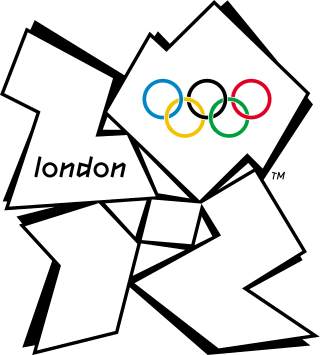Related Research Articles

The International Olympic Committee is the international, non-governmental, sports governing body of the modern Olympic Games. Founded in 1894 by Pierre de Coubertin and Demetrios Vikelas, it is based in Lausanne, Switzerland. The IOC is the authority responsible for organizing the Summer, Winter, and Youth Olympics. The IOC also is the governing body of the National Olympic Committees (NOCs) and of the worldwide Olympic Movement, the IOC's term for all entities and individuals involved in the Olympic Games. As of 2020, 206 NOCs officially were recognized by the IOC. The IOC president has been Thomas Bach since 2013.

The modern Olympic Games are the world's leading international sporting events. They feature summer and winter sports competitions in which thousands of athletes from around the world participate in a variety of competitions. The Olympic Games are considered the world's foremost sports competition, with more than 200 teams, representing sovereign states and territories, participating. By default, the Games generally substitute for any world championships during the year in which they take place. The Olympics are staged every four years. Since 1994, they have alternated between the Summer and Winter Olympics every two years during the four-year Olympiad.

The Summer Olympic Games, also known as the Summer Olympics or the Games of the Olympiad, is a major international multi-sport event normally held once every four years. The inaugural Games took place in 1896 in Athens, Greece, and the most recent was held in 2024 in Paris, France. This was the first international multi-sport event of its kind, organized by the International Olympic Committee (IOC) founded by Pierre de Coubertin. The tradition of awarding medals began in 1904; in each Olympic event, gold medals are awarded for first place, silver medals for second place, and bronze medals for third place. The Winter Olympic Games were created out of the success of the Summer Olympic Games, which are regarded as the largest and most prestigious multi-sport international event in the world.

The Winter Olympic Games, also known as the Winter Olympics, is a major international multi-sport event held once every four years for sports practiced on snow and ice. The first Winter Olympic Games, the 1924 Winter Olympics, were held in Chamonix, France. The modern Olympic Games were inspired by the ancient Olympic Games, which were held in Olympia, Greece, from 776 BCE to 394 CE. The Baron Pierre de Coubertin of France founded the International Olympic Committee (IOC) 1,500 years later in 1894, leading to the first modern Summer Olympic Games in Athens, Greece in 1896. The IOC is the governing body of the Olympic Movement, with the Olympic Charter defining its structure and authority. The original five Winter Olympic Sports were bobsleigh, curling, ice hockey, Nordic skiing, and skating. The Games were held every four years from 1924 to 1936, interrupted in 1940 and 1944 by World War II, and resumed in 1948. Until 1992, the Summer Olympic Games and the Winter Olympic Games were held in the same year. A decision to change this was made in 1986, when during the 91st International Olympic Committee session, IOC members decided to alternate the Summer Olympic Games and the Winter Olympic Games on separate four-year cycles in even-numbered years. Also, at that same congress it was decided that 1992 Winter Olympics would be the last to be held in the same year as the Summer Games and that to change the rotation, the games that would be held in 1996 would be brought forward by two years, being scheduled to 1994. After those games, the next were to be held in 1998 when the four-year Olympic Cycle resumed.

The 1936 Summer Olympics, officially the Games of the XI Olympiad and officially branded as Berlin 1936, was an international multi-sport event held from 1 to 16 August 1936 in Berlin, Germany. Berlin won the bid to host the Games over Barcelona at the 29th IOC Session on 26 April 1931. The 1936 Games marked the second and most recent time the International Olympic Committee gathered to vote in a city that was bidding to host those Games. Later rule modifications forbade cities hosting the bid vote from being awarded the games.

The 1996 Summer Olympics were an international multi-sport event held from July 19 to August 4, 1996, in Atlanta, Georgia, United States. These were the fourth Summer Olympics to be hosted by the United States, making it the first country to have three different cities host the Summer Olympics. It also marked the 100th anniversary of the 1896 Summer Olympics in Athens, the inaugural edition of the modern Olympic Games. These were also the first Summer Olympics to be held in a different year than the Winter Olympics since the Winter Olympics commenced in 1924, as part of a new IOC practice implemented in 1994 to hold the Summer and Winter Games in alternating, even-numbered years. The 1996 Games were the first of the two consecutive Summer Olympics to be held in a predominantly English-speaking country, preceding the 2000 Summer Olympics in Sydney, Australia. These were also the last Summer Olympics to be held in North America until 2028, when Los Angeles will host the games for the third time.

The 2008 Summer Olympics (2008年夏季奥运会), officially the Games of the XXIX Olympiad (第二十九届夏季奥林匹克运动会) and officially branded as Beijing 2008 (北京2008), were an international multisport event held from 8 to 24 August 2008, in Beijing, China. A total of 10,942 athletes from 204 National Olympic Committees (NOCs) competed in 28 sports and 302 events, one event more than those scheduled for the 2004 Summer Olympics. This was the first time China had hosted the Olympic Games, and the third time the Summer Olympic Games had been held in East Asia, following the 1964 Olympics in Tokyo, Japan, and the 1988 Olympics in Seoul, South Korea. These were also the second Summer Olympic Games to be held in a communist state, the first being the 1980 Summer Olympics in the Soviet Union.

The 2016 Summer Olympics, officially the Games of the XXXI Olympiad and officially branded as Rio 2016, were an international multi-sport event held from 5 to 21 August 2016 in Rio de Janeiro, Brazil, with preliminary events in some sports beginning on 3 August. Rio de Janeiro was announced as the host city at the 121st IOC Session in Copenhagen, Denmark, on 2 October 2009.

The 2020 Summer Olympics, officially the Games of the XXXII Olympiad and officially branded as Tokyo 2020, were an international multi-sport event held from 23 July to 8 August 2021 in Tokyo, Japan, with some preliminary events that began on 21 July 2021. Tokyo was selected as the host city during the 125th IOC Session in Buenos Aires, Argentina on 7 September 2013.

The 2012 Summer Olympics, officially the Games of the XXX Olympiad and also known as London 2012, were an international multi-sport event held from 27 July to 12 August 2012 in London, England, United Kingdom. The first event, the group stage in women's football, began on 25 July at the Millennium Stadium in Cardiff, Wales, followed by the opening ceremony on 27 July. There were 10,518 athletes from 206 National Olympic Committees (NOCs) who participated in the 2012 Olympics.

The all-time medal table for all Olympic Games from 1896 to 2024, including Summer Olympic Games, Winter Olympic Games, and a combined total of both, is tabulated below. These Olympic medal counts do not include the 1906 Intercalated Games which are no longer recognized by the International Olympic Committee (IOC) as official Games. The IOC itself does not publish all-time tables, and publishes unofficial tables only per single Games. This table was thus compiled by adding up single entries from the IOC database.

The 2024 Summer Olympics, officially the Games of the XXXIII Olympiad and branded as Paris 2024, were an international multi-sport event held from 26 July to 11 August 2024 in France, with several events started from 24 July. Paris was the host city, with events held in 16 additional cities spread across metropolitan France, including the sailing centre in the second-largest city of France, Marseille, on the Mediterranean Sea, as well as one subsite for surfing in Tahiti, French Polynesia.

The 2028 Summer Olympics, officially the Games of the XXXIV Olympiad and commonly known as Los Angeles 2028 or LA28, is an upcoming international multi-sport event scheduled to take place from July 14–30, 2028, in the United States. Los Angeles will be the host city, with various events also scheduled to be held at other cities spread across the Greater Los Angeles area, plus two subsites in Oklahoma City.

Michael Fred Phelps II is an American former competitive swimmer. He is the most successful and most decorated Olympian of all time with a total of 28 medals. Phelps also holds the all-time records for Olympic gold medals (23), Olympic gold medals in individual events (13), and Olympic medals in individual events (16). At the 2004 Summer Olympics in Athens, Phelps tied the record of eight medals of any color at a single Games, held by gymnast Alexander Dityatin, by winning six gold and two bronze medals. Four years later, when he won eight gold medals at the 2008 Beijing Games, he broke fellow American swimmer Mark Spitz's 1972 record of seven first-place finishes at any single Olympic Games. At the 2012 Summer Olympics in London, Phelps won four gold and two silver medals, and at the 2016 Summer Olympics in Rio de Janeiro, he won five gold medals and one silver. This made him the most successful athlete of the Games for the fourth Olympics in a row.
The Shaheed Benazir Bhutto International Boxing Tournament took place in the KPT Benazir Sports Complex in Karachi, Pakistan from 1–8 January 2010. Amir Khan, the professional British boxing world champion of Pakistani descent was the guest in the final rounds of tournament.
Sabirzhan Ruziyev is a Soviet fencer. He won a silver medal in the team foil event at the 1980 Summer Olympics.
Vladimir Lapitsky is a Soviet fencer. He won a silver medal in the team foil event at the 1980 Summer Olympics.

Byambyn Tüvshinbat is a Mongolian boxer. He competed in the 2007 and 2011 Asian Amateur Boxing Championships, the 2006 and 2010 Asian Games, the 2006 World University Boxing Championship and the Shaheed Benazir Bhutto International Boxing Tournament. Tüvshinbat represented Mongolia in the Men's welterweight event at the 2012 Summer Olympics and defeated Gabonese Yannick Mitoumba in the first round but lost to Frenchman Alexis Vastine in the second round then in the 2016 Summer Olympics, beating Alberto Palmetta of Argentina in the first round and losing by split decision to Steven Donnelly in his second match.
Moabite Notebook is a 1968 Soviet biographical war film directed by Leonid Kvinikhidze.
References
- ↑ "Rafkat Ruziyev Olympic Results". sports-reference.com. Archived from the original on 18 April 2020. Retrieved 23 February 2012.